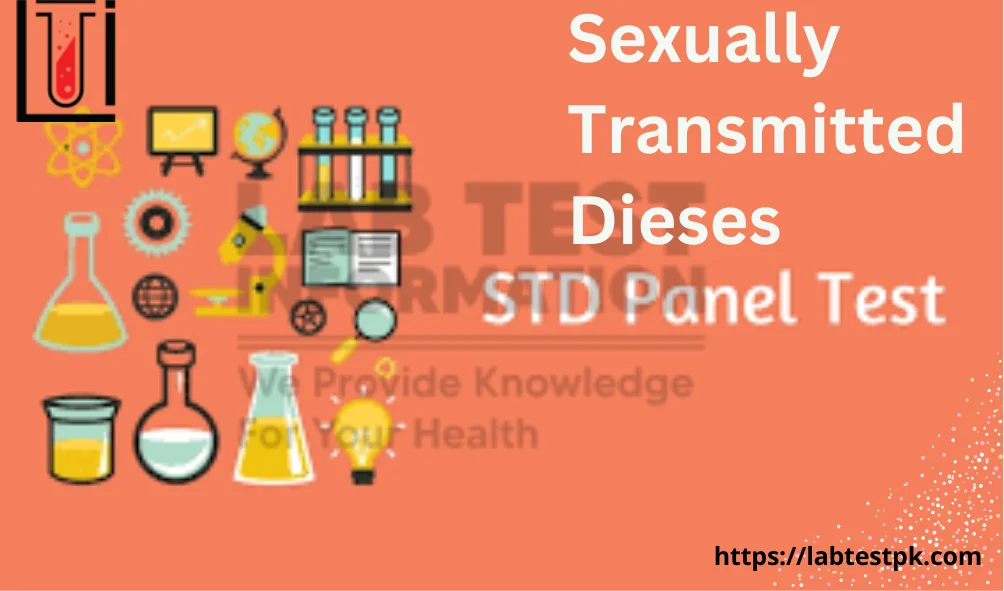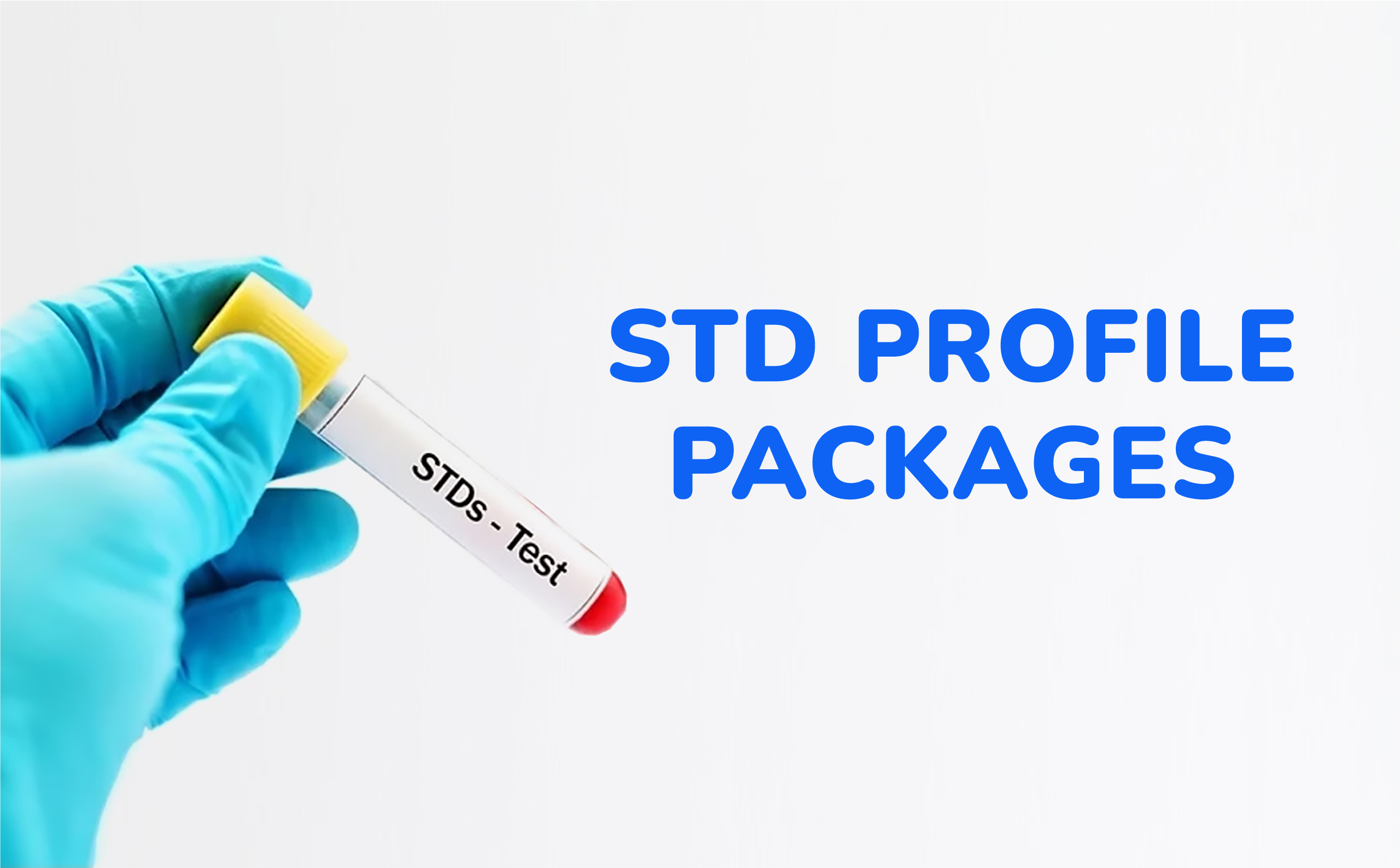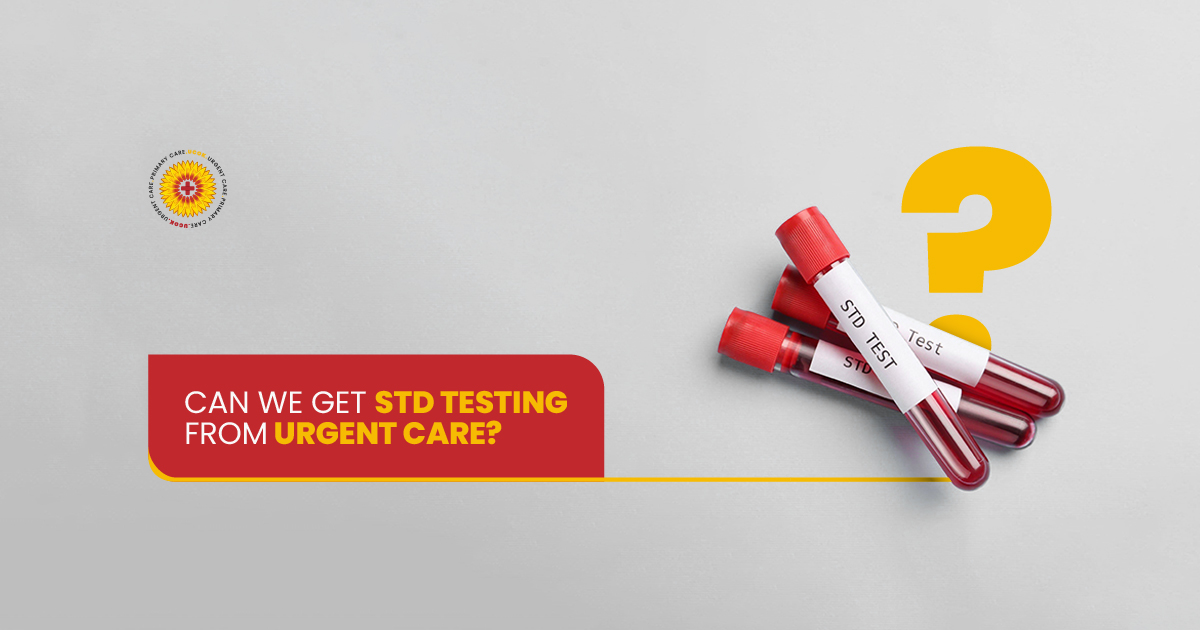Comprehensive STD Panel A comprehensive STD Panel, also known as a sexually transmitted infection (STI) panel or STD screening, is a battery of tests that aim to detect a range of sexually transmitted diseases or infections. The specific tests included in such a panel can vary, but they generally cover the most common and concerning STIs. It’s important to note that not all STD panels are the same, and healthcare providers might tailor the panel based on individual risk factors and concerns. Below are some of the common STDs that might be included in a comprehensive STD panel:
-
HIV (Human Immunodeficiency Virus):
HIV is a virus that attacks the immune system, potentially leading to acquired immunodeficiency syndrome (AIDS). HIV testing usually involves a blood test that detects the presence of antibodies or viral genetic material. -
Syphilis:
Syphilis is a bacterial infection that can cause various symptoms and complications if left untreated. Testing usually involves a blood test to detect the presence of antibodies. -
Gonorrhea:
Gonorrhea is a bacterial infection that can affect the genital tract, rectum, and throat. Testing can involve urine or swab samples, depending on the site of infection. -
Chlamydia:
Chlamydia is a common bacterial infection that can affect the genitals, rectum, and throat. Testing usually involves urine or swab samples. -
Chlamydia:
Chlamydia is a bacterial infection that can affect the genital tract, rectum, and throat. Testing can involve urine or swab samples, depending on the site of infection. -
Hepatitis B and C:
Hepatitis B and C are viral infections that affect the liver. Testing often involves blood tests to detect viral antigens, antibodies, or genetic material. -
Herpes:
Herpes simplex virus (HSV) can cause oral and genital sores. Testing can involve swabbing the affected area or blood tests to detect antibodies. -
HPV (Human Papillomavirus):
HPV is a common viral infection that can lead to genital warts and is linked to certain types of cancer. Testing can involve visual inspection, Pap smears, or HPV DNA tests. -
Trichomoniasis:
Trichomoniasis is a parasitic infection that can affect the genitals. Testing often involves a swab or urine sample. -
Bacterial Vaginosis (BV):
While not an STD, BV is an imbalance of bacteria in the vagina that can lead to symptoms similar to an infection. Testing usually involves a vaginal swab. -
Ureaplasma and Mycoplasma:
These are bacteria that can cause genital and urinary tract infections. Testing often involves swab samples. -
Lymphogranuloma Venereum (LGV):
C is a rare type of chlamydia that can cause more severe symptoms. Testing involves swab samples from the affected area.
It’s important to consult a healthcare professional to determine the appropriate STD panel based on your circumstances, sexual practices, and potential exposure risks. Regular testing and safe sexual practices are essential for preventing and managing STIs.
Blood Test of Comprehensive STD Panel:
A comprehensive STD panel, also known as a full STD panel or STD testing panel, typically includes a series of blood tests and sometimes additional swabs or urine tests to screen for a variety of sexually transmitted infections (STIs). The specific tests included in such a panel may vary depending on the healthcare provider, the testing facility, and the individual’s risk factors. However, I can provide you with a general idea of the types of blood tests commonly included in a comprehensive STD panel:
-
HIV Test (Human Immunodeficiency Virus):
This test detects the presence of antibodies or viral RNA/DNA associated with HIV, which is the virus that causes AIDS. -
Syphilis Test:
Syphilis can be detected through a blood test that looks for antibodies produced by the body in response to the infection. -
Hepatitis B and C Tests:
Blood tests screen for the presence of hepatitis B and C viruses, which can cause liver infections and other health issues. -
Herpes Simplex Virus (HSV) Test:
Blood tests can determine the presence of antibodies to the herpes simplex virus, which causes genital herpes. -
Chlamydia and Gonorrhea Tests:
While these infections are commonly diagnosed using urine or swab tests, blood tests can also be used to identify antibodies produced in response to the infections. -
Human Papillomavirus (HPV) Test: HPV testing is usually done through swabs or pap smears, but blood tests can detect antibodies to certain types of HPV.
It’s important to note that not all STIs can be detected through blood tests alone. Some infections, like chlamydia and gonorrhea, often require separate urine or swab tests. Additionally, the accuracy of these tests can vary based on factors such as the timing of the test about potential exposure, the individual’s immune response, and the specific test used.
Why do I need a Comprehensive STD Panel test?:
A Comprehensive STD Panel test, also known as a Full STD Panel or STD Screening, is a medical test that checks for a range of sexually transmitted diseases (STDs). Here are some reasons why you might consider getting a Comprehensive STD Panel test:
-
Early Detection:
Many STDs may not show noticeable symptoms in their early stages. Getting tested regularly, even if you don’t have symptoms, can help detect infections early, allowing for prompt treatment and reducing the risk of complications. -
Prevention:
If you’re sexually active, getting tested for STDs is a responsible step to take to prevent the spread of infections to your sexual partners. Regular testing helps identify infections that you might not be aware of. -
Multiple Infections:
Some individuals may have multiple sexual partners or engage in risky sexual behaviors, which can increase their risk of contracting multiple STDs. A Comprehensive STD Panel test covers a wide range of common infections, providing a more complete picture of your sexual health. -
Peace of Mind:
If you’re concerned about your sexual health or have had unprotected sex, a Comprehensive STD Panel test can provide peace of mind by confirming whether you have any infections or not. -
Pregnancy Planning:
If you’re planning to become pregnant or are currently pregnant, it’s important to know your STD status. Some STDs can be transmitted from mother to child during pregnancy or childbirth, potentially leading to serious health issues for the baby. -
Partner Discussion:
If you’re entering a new sexual relationship or discussing sexual health with a partner, sharing recent STD test results can help facilitate an open and honest conversation about protection and potential risks. -
Public Health:
Regular STD testing is important for public health monitoring and prevention efforts. It helps health organizations track the prevalence of STDs, identify trends, and develop strategies to control their spread. -
Asymptomatic Carriers:
Some individuals can be carriers of STDs without experiencing symptoms themselves. These individuals can unknowingly transmit infections to others. Regular testing can help identify carriers and prevent further transmission. -
Personal Well-Being:
Knowing your STD status can contribute to your overall well-being. It allows you to take appropriate steps for treatment and manage your health effectively. -
Tailored Advice:
If you do test positive for an STD, healthcare professionals can provide you with tailored advice on treatment options, prevention strategies, and safer sexual practices.
What do the STD test results mean?
STD test results typically provide information about whether a person has contracted a sexually transmitted disease (STD) or infection (STI). The results can vary based on the specific tests conducted and the individual’s sexual health. Here’s a general overview of what different categories of test results might mean:
-
Negative:
A negative result indicates that no evidence of the tested STD/STI was found in the samples. This suggests that the individual does not currently have the infection(s) for which they were tested. -
Positive:
A positive result indicates the presence of an STD/STI. It means that the individual has tested positive for the specific infection(s) for which they were tested. -
Inconclusive:
An inconclusive result means that the test did not provide a clear “positive” or “negative” result. This could be due to various reasons, such as a low level of the pathogen, technical issues with the test, or testing at a stage where the infection might not be detectable. -
False Positive:
A false positive result occurs when a test incorrectly indicates the presence of an infection when the individual does not have it. This can happen due to various factors, including cross-reactivity with other substances or infections. -
False Negative:
A false negative result occurs when a test incorrectly indicates the absence of an infection when the individual has it. False negatives can occur if the individual was tested too soon after exposure (before the infection reached detectable levels) or if the test was not conducted correctly.
It’s important to note that different STD/STI tests have different windows of detection, accuracy rates, and limitations. Some common STD tests include:
-
Blood tests:
These can detect certain infections by measuring the presence of antibodies or antigens in the blood. -
Urine tests:
These can detect infections like chlamydia and gonorrhea. -
Swab tests:
These involve taking samples from genital, oral, or rectal areas to check for infections like herpes, HPV, chlamydia, and gonorrhea. -
Physical examination:
In some cases, a doctor may visually diagnose certain infections like genital warts or herpes sores.




[…] bacteria that can infect the genital and urinary tracts in both men and women. It is considered a sexually transmitted infection (STI) and can lead to various health issues if left untreated, such as pelvic […]
[…] Reagin (RPR) test is a blood test used to screen for syphilis, a sexually transmitted infection (STI) caused by the bacterium Treponema pallidum. The RPR test is a non-specific test that detects […]
[…] the blood vessels in the placenta. It is believed to play a role in preventing the mother’s immune system from attacking the developing fetus, which contains genetic material from both […]
[…] sores that typically appear on or around the lips. They are caused by the herpes simplex virus (HSV), primarily the HSV-1 […]
[…] The amplified RNA is measured to determine the viral load, which is the amount of HIV RNA present in the blood. The viral load is typically reported as the number of copies of HIV RNA per milliliter (copies/mL) […]
[…] Loci: HLA genes are divided into class I (HLA-A, HLA-B, HLA-C) and class II (HLA-DR, HLA-DP, HLA-DQ) loci. The results will specify which loci were tested and […]
[…] and correctly using condoms or dental dams during sexual activity can reduce the risk of HPV transmission but does not eliminate it since the virus can infect areas not covered by the […]
[…] your entire genome to identify all the genetic variations and mutations you carry. It provides comprehensive information about your genotype but is also the most expensive […]